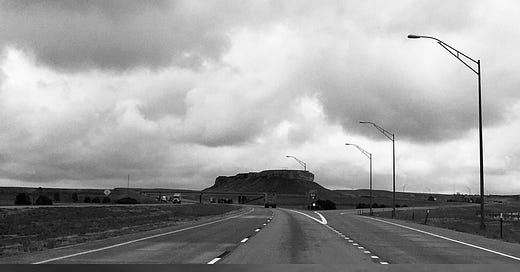I'm Not Normal...or Am I?
When asked "Just be yourself," I have trouble coming up with a prescribed way of behaving. Weird, huh? But do any of us really know how to be "ourselves?"
Being “normal” is so 1950s. Seems like “normal” was the goal, the way to achieve fame and popularity. But, I grew up in a Catholic family, so normal, good taste, and being good were drilled into me. Today, “normal” is not PC—we have at least acknowledged that there are many different ways of learning, identifying, and being. There is no “normal.”
So let’s see what this 1992 books has to say about the ways we’ve been taught to “behave.” We’ve Had a Hundred Years of Psychotherapy and the World’s Getting Worse, by James Hillman and Michael Ventura, 1992, is a book of correspondence between the two in which they discuss big ideas. Here they tackle to practice of psychotherapy.
Dear Michael,
Let’s keep working away at why the world is getting worse—getting worse not only in the usual sense, about Amazon forests and dead dolphins. That is the easy part to see, if not easy to correct. Our job is to show how psychology contributes to making the world worse.
Suppose we entertain the idea that psychology makes people mediocre; and suppose we entertain the idea that the world is in extremis, suffering an acute, perhaps fatal, disorder at the edge of extinction. Then I would claim that what the world needs most is radical and original extremes of feeling and thinking in order for its crisis to be met with equal intensity.
[…]
Therapy as sedation: benumbing, an anesthesia so that we calm down, relieve stress, relax, find acceptance, balance, support, empathy. The middle ground. Mediocrity.
First thought: Things haven’t changed much since 1992, and looking back after the half-decade we’ve just been through, I’m guilty of seeing the past as somewhat uneventful; a time when we had a leader who was intelligent and reassuring, someone I could trust. There was a even moment or two when I thought we would have a female president. This was when I believed in the government’s system of checks and balances and respect for the constitution. Things were not great, but there was promise in the air.
I no longer feel that way. My perception in 2021 is that the world has gotten worse over the past five years. But has it? Is that just the view from the silo I live in? An ongoing challenge is to check in with other points of view to avoid becoming the kind of person I so dislike—uninformed, rigid, opinionated, closed-minded, distrusting, etc.
Perhaps, as Ventura states above, we were just “mediocre,” that we suffered from a lack of “radical and original extremes of feeling and thinking.” Maybe we were “benumbed” by the usual big problems of global hunger, numerous wars, the wealth gap, the extinction of animals, and the plundering of natural resources. Perhaps this collective lack of original, radical thinking got us where we are now—in extremis—and an “equal intensity” of radical and original thinking is needed to pull us through.
Ventura suggests that harnessing this thinking into an acceptable package is best done through the arts; the place where society can safely contain radical, innovative, and disruptive thinking.
If that’s what it takes to set things right, we should all pick up our pens, our paints, our cameras, and chisels. Don’t wait for someone with “more talent,” or “more time,” someone with “better ideas,” or “better connections.” Many have gone before you. Do we need to share the same politics or beliefs? Nope. Let’s give all ideas an accepted place of expression. Who knows? We may find that distant land known as Common Ground.
Speaking of art…
Don’t you love these paintings? I just fell into them. Partly because I love abandoned and decaying houses and buildings, partly because of the color palette, but mostly because of the sense of joy. Yes, even in the ruins of something, potential looms, especially if one isn’t restrained by normality or societal expectations. See what you think.
…the Detroit-based artist […] considers the deeply American tendency to configure the world with single, flat narratives. Perry takes an opposing approach, though, and instead layers his pieces with contradiction, complexity, and unusual details that reflect the current moment.
And, if you are feeling anxious
Finally, a image I created…
Image copyright 2021



